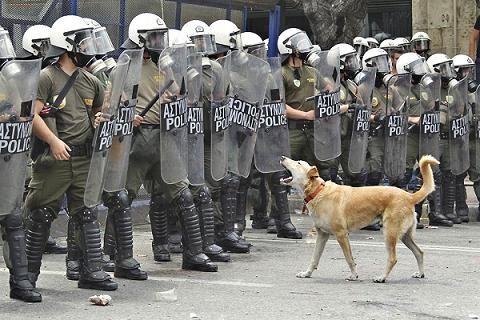
Self-abolition of the poet (Part 3)

In the last two posts in this series, we’ve tried to illuminate a possible future for poetry beyond poets and poems. We’ve argued that this future is one resolution of a long-standing contradiction internal to poetry, a contradiction we can trace back to the emergence of literate poetry in the first class societies. The horizon we have sketched out is not an idle utopia, even if it is hardly certain; it is, as we’ve argued, perceptible as the decipherment of a persistent tension within poetry, a strange ache. In the modern period, this tension has given rise to a curious tradition of antipoetic or antiaesthetic experiments through which poets have tried to abolish poems and themselves along with them, to exorcise poetry once and for all of its powers of mystification, to render it unintelligible, mute, to tear it apart in hysterical enacments of the fragmentation of bourgeois society. Poetry signals beyond itself to what it cannot resolve, though it does keep trying. This much, we hope, has been clear.
However, the question that seems to linger for our readers pertains not to tomorrow or yesterday but to today. What is to be done, then, if poetry is what we say it is? We have few answers here. Indeed, we think that the search for answers in poetry is, in many regards, not the answer. We are certainly not endorsing the antipoetic tradition, such as it is. In fact, we think it rather obvious in retrospect that these antipoetic experiments have only served to sustain the poetry they hoped to negate. The relationship between antipoetry and the institutional preservation of poetry is now so well-established, the negative gesture so domesticated, that one can only participate in such creative anachronisms cynically. There are apps for that. The result, now, is that we have varieties of simple negation whose only horizon seems to be to return poetry to its primordial vocation as a technique of administration – poetry as inventory, as legal code.
This is why we wrote, in our last post, that poetry cannot itself be a program for the abolition of poets and poems, however much the drive toward such abolition is ineluctably part of the make-up of poetry. Only a revolutionary reconfiguration of human society could do this. Until such time, nothing that anyone does is likely to either satisfy this itch or divert our attention from it. To the extent that we have a relationship to this contradiction, as publishers of poetry and other antagonisms, we want to render this horizon, this future, visible. Perhaps that’s the most we can hope for from poetry.
But what of the other thing, revolution? What is to be done about that? Sadly, we have few answers here too. We have perspectives. We have a sense that capitalism’s prospects are very weak, and that these grim prospects are at once the conditions of possibility both for the communism we have described above and new and perhaps more brutal forms of class society. We can tell you how the social movements and uprisings of recent years have failed; we can describe their limits, and how the various programs and ideas about revolution received from the 20th century are unlikely to be of much help to us now. We can talk in the abstract about how things might unfold, what they might look like (as our friends at Endnotes have here , but we certainly have no idea about how to bring anything about, and in many regards think that this simply can’t be done apart from those historical moments when people truly can collectively ask each other what they might do. In those moments, there are answers. 2011 was one of those moments. There will be others.. This is the point, then: while we certainly have commitments, our thoughts about revolution do not come from should and ought. They come from registering the intolerability of the present world, from the foretaste of its demise, and from the sense that such developments press closer on us now than they have previously. Struggles dramatic enough they will not bear the name "progress" are coming, whether one finds such a prospect appealing or not. Until then, there are some modest things we can do: study, write, develop relationships, build infrastructure that might be helpful in the future but that doesn't absorb too much energy.
Poetry is, let’s say, one of these modest things. Elsewhere, we have written that Commune Editions might play a role something like the riot dogs of Athens, a companion to struggles and manifestations whose contribution is ultimately minor, providing inspiration, maybe distracting the enemy now and then but unable to do much to alter the balance of forces. A dog, too, might start barking when the cops are about to kick down your door. Perhaps that’s it, for know, what we’re doing, what is to be done, with poetry. Some barking. Some letting you know that the cops are at the door. They’ve been there for a while.